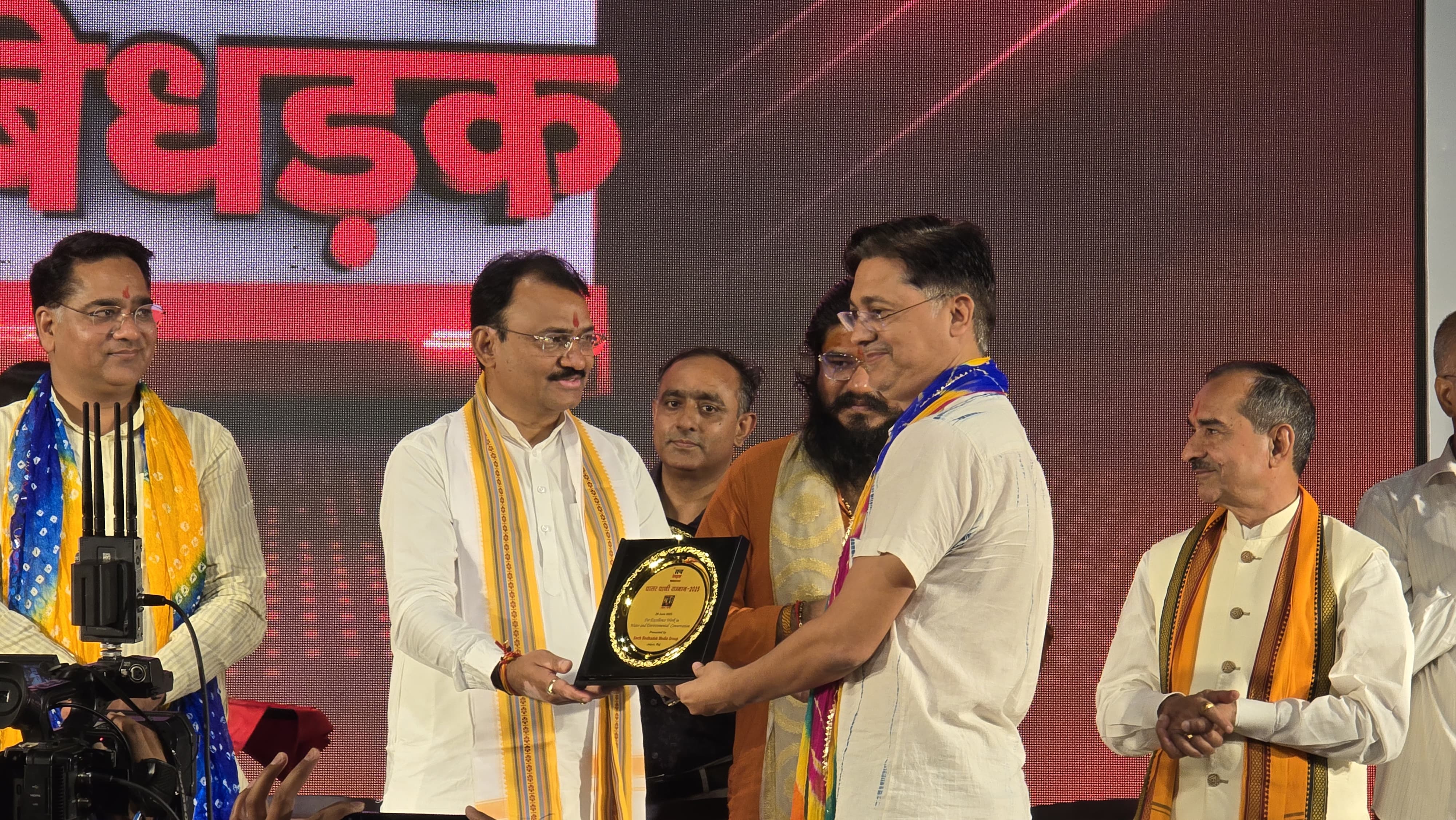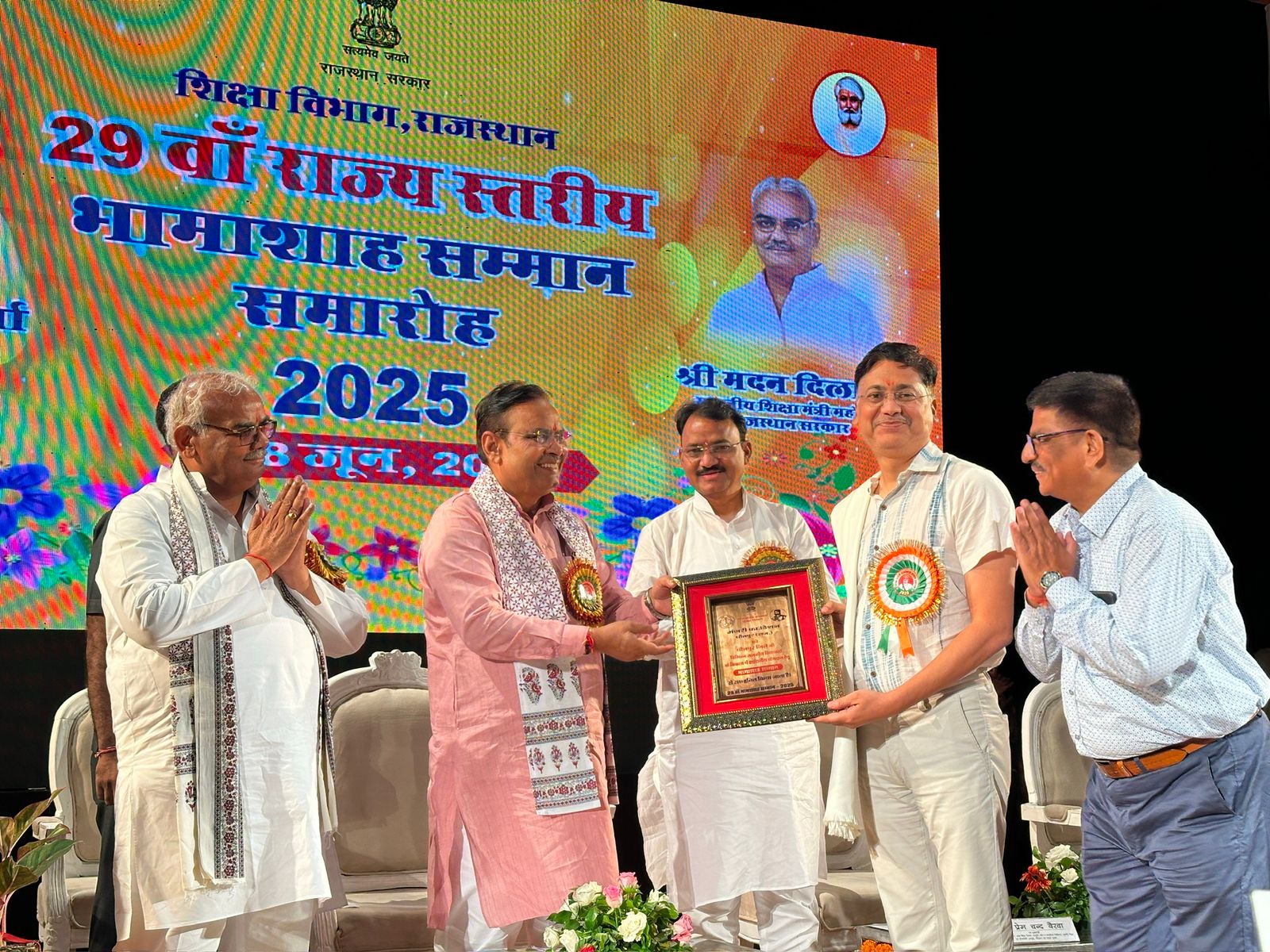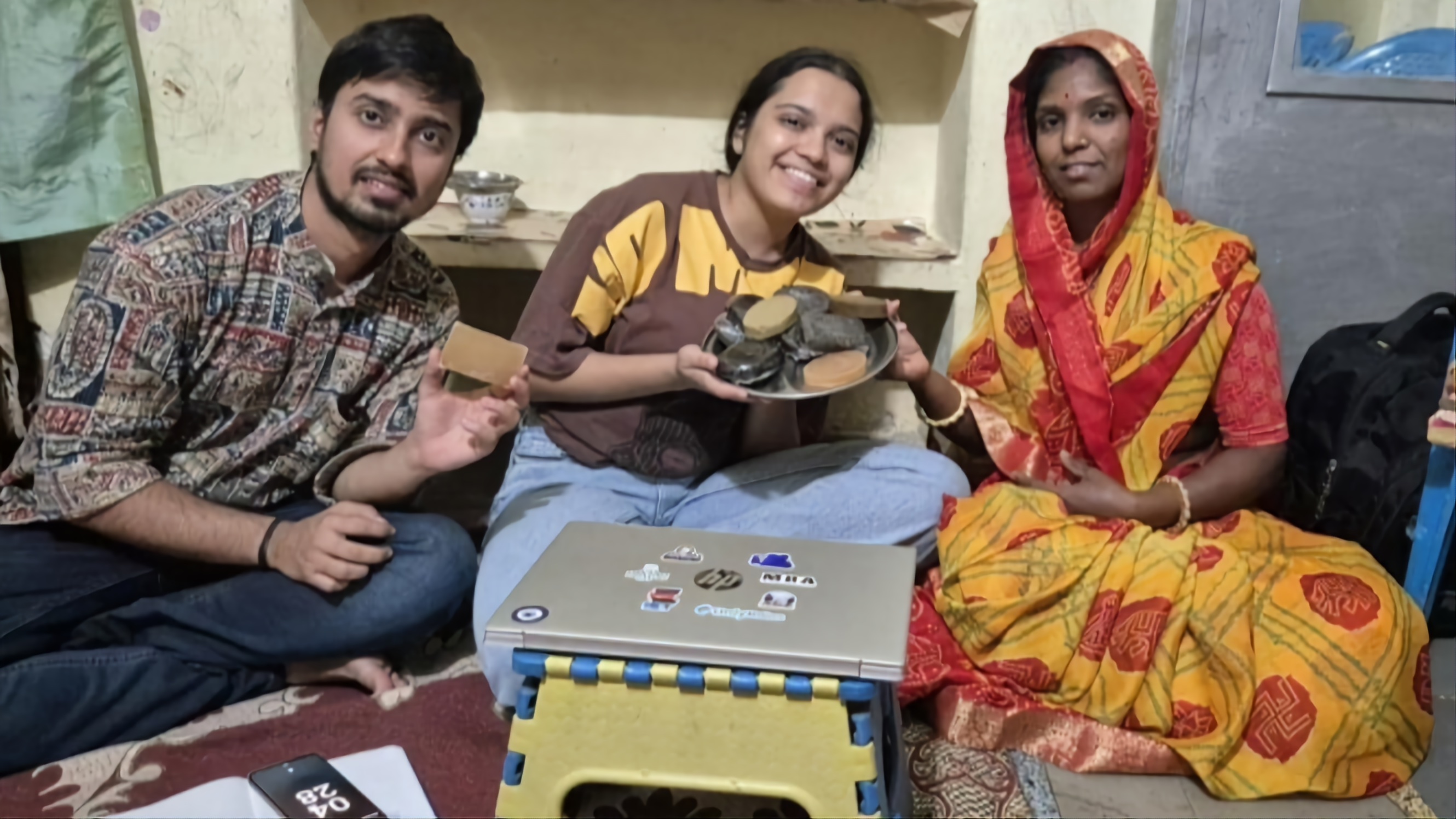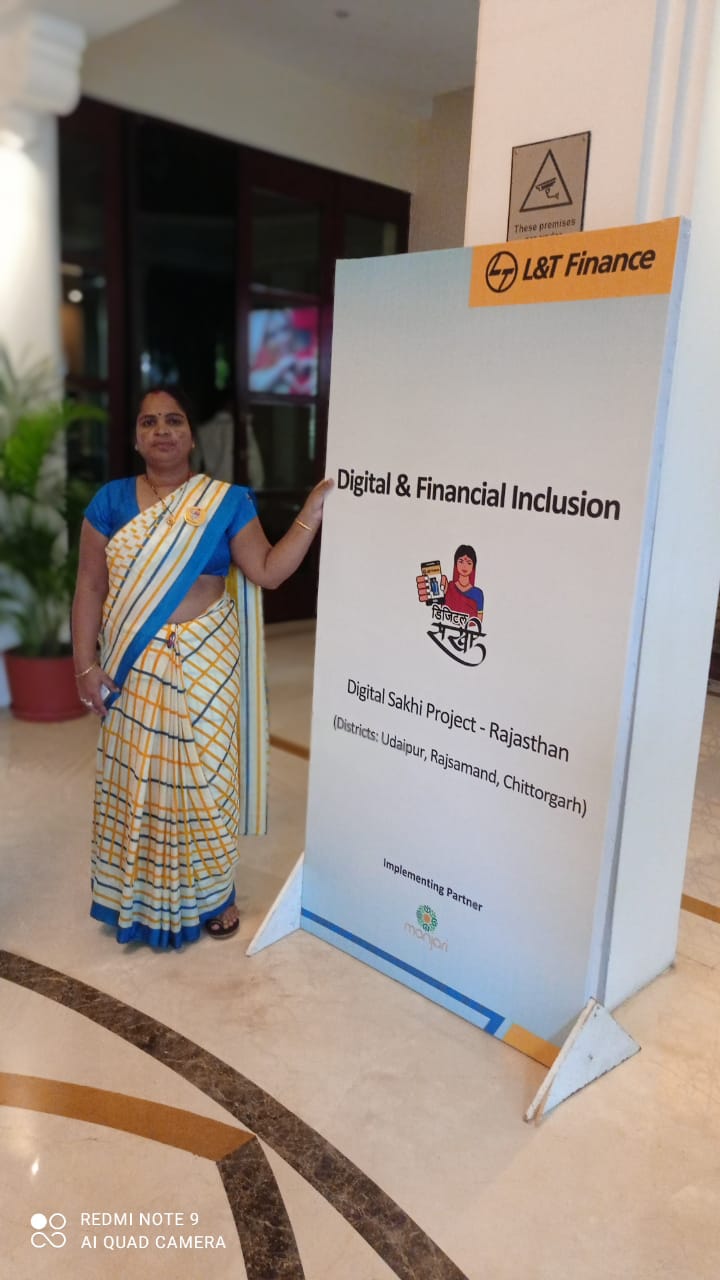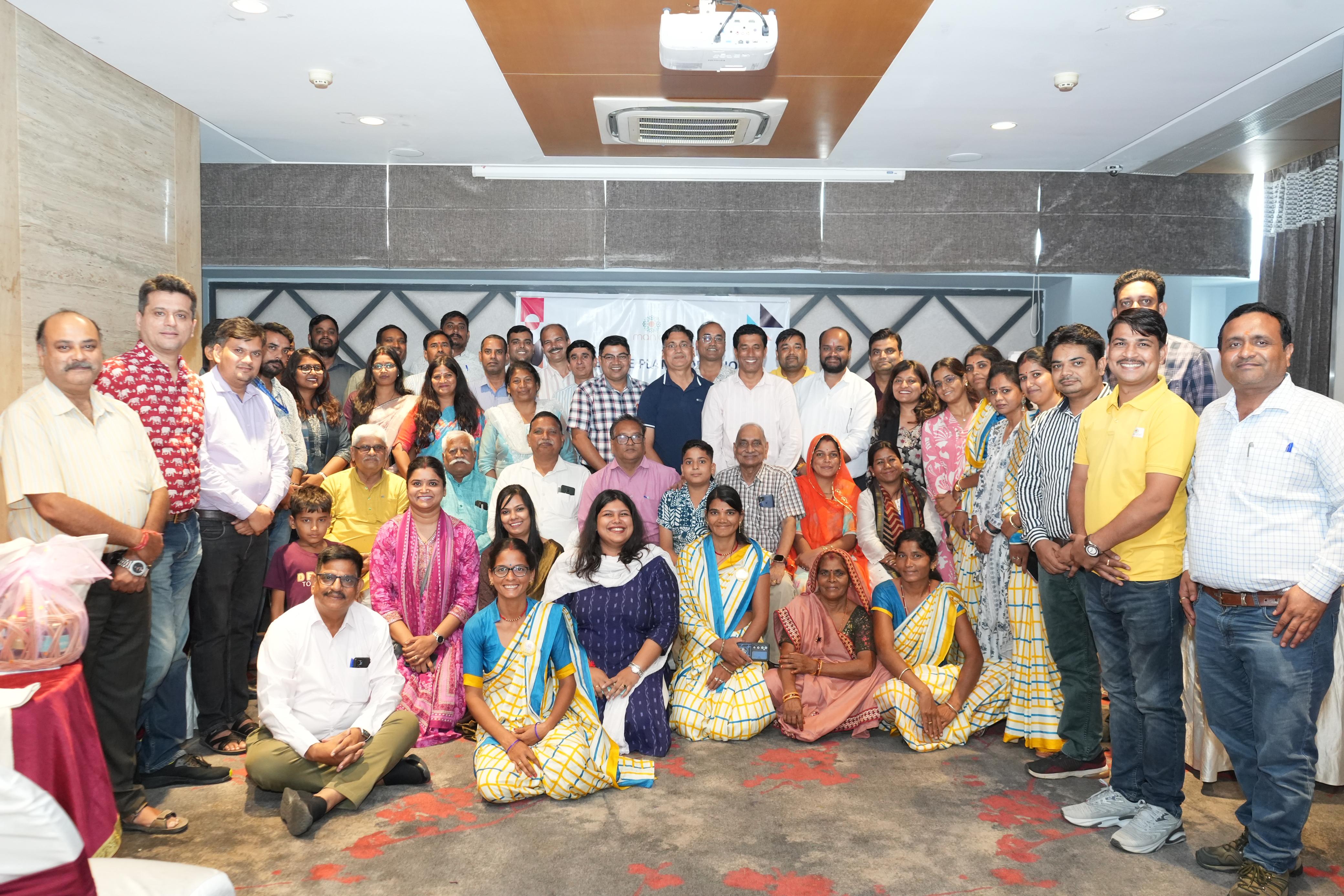
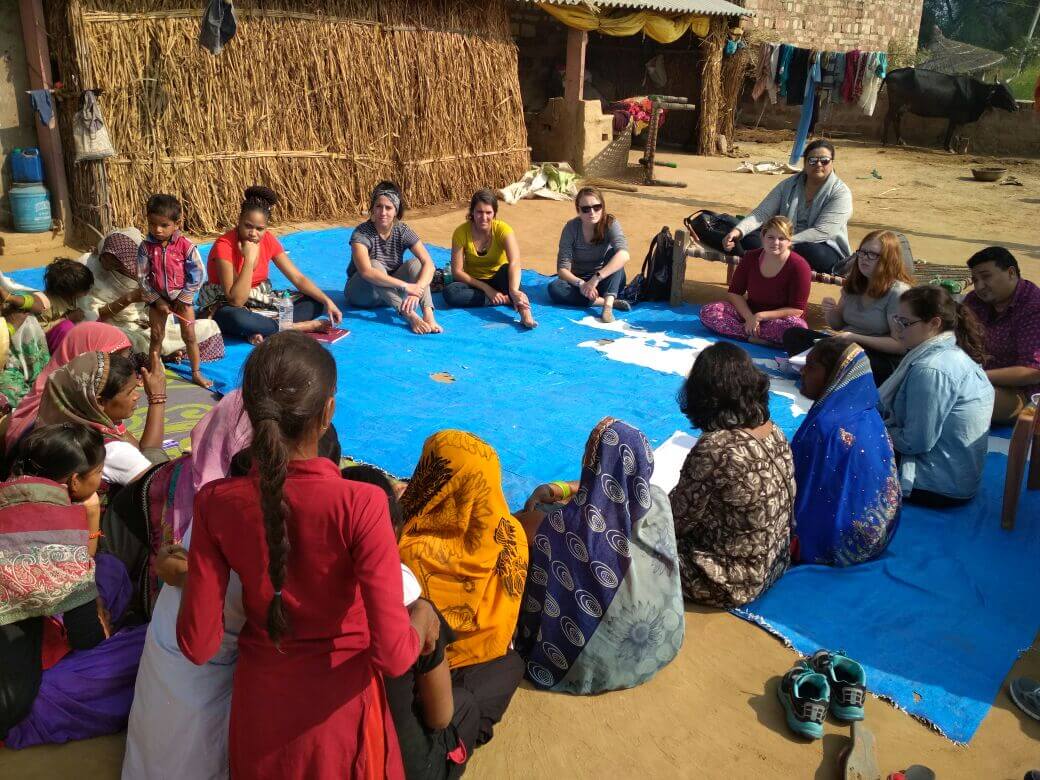
Rural Immersion Programme: An Approach For Transforming Young Lives
Jun 14, 2023
Overview: Manjari Foundation supports institutions from diverse segments of society and industry to invest their time and unique talents to understand & create sustainable change. It has therefore in collaboration with the universities designed the Rural Immersion Programme for Young Professionals where they can experience, live and learn about the various aspects of life in rural areas.
Introduction
As we know there are 17 Sustainable Development Goals (SDGs) decided by the UN for 2030 https://sustainabledevelopment.un.org/?menu=1300 and the globe is striving to achieve various Sustainable Development Goals by 2030. The 17 Sustainable Development Goals (SDGs) cover a wide range of themes like multi-disciplinary public goods, social issues, and economic growth. India is continuously challenged to accomplish these SDGs but presently it is ranking low on the Global Development Indices.
The present engagement of the Manjari Foundation is aligned with six of the 17 SDGs. The Foundation strives to achieve strong partnerships and support from the government, private sector, and various partner organizations. The foundation also supports institutions from diverse segments of society and invests their unique talents to understand and create sustainable change.
Manjari Foundation in collaboration with the State Buffalo University, USA designed the Rural Immersion Programme for the Young Professionals. The foundation seeks to motivate and encourage Young Professionals with head and heart to experience, live and learn about the various aspects of life in rural areas.
The Background
Manjari Foundation was set up with the objective to work with the marginalized community in selected poverty pockets. Currently, it is working in seven districts of Rajasthan; namely Dholpur, Dausa, Udaipur, Chittorgarh, Rajsamand, Bhilwara, Ajmer, and one district of Uttrakhand; Pantnagar covering 74,750 rural families.
Objective Of Rural Immersion Programme:

The Rural Immersion Programme- An Introduction
The Rural Immersion Programme (RIP) is a unique initiative that was instituted with the objective to orient young professionals toward sustainable development processes and evidence-based development strategies to address the complex issues of poverty.
The program broadly covers the role of non-profit organizations and government policies for rural development in India, the planning & execution process & functions of a three-tier system. i.e.
- Gram Panchayat – Village Level
- Mandal Parishad or Block Samiti – Block Level
- Zila Parishad – District Level
The Rural Immersion Programme started with a brief introduction to India’s emerging economy and how development is happening all over the country. The discussion revolved around that despite the fact India’s high GDP growth rate there are many poverty pockets across the country. The central theme was:
- India’s economic growth vis a vis overall development which includes challenges for employment generation
- Status of Women
There was a lot of discussion about Rural and urban India. According to the Census-2011, the population increased to 121 Crores with a decadal growth of 17.64%. The Adult literacy rate increased to 74.04% (male 82.14% and female 65.46 %) with a decadal growth of 9.21% and the male, female sex ratio is 1000: 943.
Internationally, an income of less than $1.90 per day per head of purchasing power parity is defined as extreme poverty. By this estimate, about 21.2% of Indians are extremely poor. India, with 2.4% of the world’s surface area, accounts for 17.5% of its population.
Sustainable Development Goals (SDGs) And The Foundation’s Approach
Objective:
- To share about Macro and Micro development challenges globally
The Rural Immersion program was designed to orient the students about the SDGs and how Manjari Foundation is working for addressing the SDGs
This session was brainstorming and educative for participants. The participants got ideas about development challenges and adopted strategies for addressing the SDGs in the regional context. It was interesting to know how each SDG is interlinked with each other. The close relationship between SDGs and livelihood security was also highlighted.

Women Collectives And Development Initiatives
Objective:
The Rural Immersion Programme was designed to make the participants aware of the current scenario of various development initiatives vis a vis women collectives.
Manjari Foundation shared the experiences of engagement and association with Women Collectives and the current scenario of various development initiatives. The presentation focused on how social mobilization and women empowerment is taking place in rural areas. The team also shared the Community-Led Microfinance and its impact on rural communities especially on women members.
There were many insights during the discussion. E.g., how community-led microfinance is different from traditional microfinance? Most of the participants were elated to hear the success stories of rural women. There were a lot of questions about the management and governance of Women Collectives; like,
- How these collectives were formed?
- How and when do they meet? And
- What are their rules and regulations?
- What are the key activities done by collectives?
- Any relevant experiences?
- How collectives bring changes
Interaction With Community Institutions
Objective:
- The Rural Immersion Programme was designed to orient the participants about the rural context
- To visit and interact with the village community
All the participants visited Hansai village under the Bari block of the Dholpur district and tried to understand the rural setup, context, challenges, hardships, and opportunities as well.
Field visits also included interaction with Women Collectives (Self Help Groups, Village Organizations, and SHG Federation), exposure to various livelihood initiatives, natural resource management works, and interaction with Panchayati Raj Institution members and government officials as well.
In Ludhpura village (Saipau block) the participant visited and interacted with the Self Help Groups (SHG) members. During the SHG meeting participants observed and learned about the best practices followed by SHG members.
SHG meeting provides a lot of insights into how SHG groups are self-managed and self-regulated. This also provides ideas about the sustainability and long-term vision of Community Institutions.
Interaction with women members helped to understand the women empowerment context, and what empowerment really means for rural women. It was interesting to hear the transformative stories of women members.
SHG members narrated their experiences about how they started their journey a few years ago with small savings and now they are financially dependent and creating assets for economic growth and empowerment. It was fascinating to find out that many members were taking the loan for investing in education. Some had taken the loan for the higher education of daughter in law and daughters as well

The Shift In Power Structure
Objective:
- The Rural Immersion Programme was designed to help the participants understand the success of women SHG members in changing the power structures within the family and their vicinity.
Women members shared how access to loans matters for them. Earlier they were not able to save and were directly dependent on male members of their family and on moneylenders.
The SHG members shared that it is because of the Self Help Groups, they can access the timely loan which is helping them for day-to-day operations and also for productive assets and family well beings. This whole process is altering the power structure in their family and vicinity.
The members shared now feel more confident because they have a sense of recognition and identity. Leela Behanji says now people call us by our names or by the members of different institutions and not only with his wife or his/her mother. It matters to us, and we cherish it.
Meanwhile, we also interacted with Village Organization (VO)- (IInd tier SHG Institution) members. In the village organization meeting, we learned how the women members are coming together and addressing the village-level issues.
There are thrilling stories where Leela from Hansai village shared about their Vo's experience to deal with and addressing MGNREGA issues with local panchayat. It was powerful collective action by the rural women for addressing the challenges. There were numerous examples when the VO members challenge the traditional norms and set a new path for their development. It was interesting and worth knowing how empowerment is shaping rural India and how women are leading change by breaking the patriarchal structures.
In Sarmathura, women members shared about reclaiming their spaces through participating in various public forums which earlier dominated or were governed by male members. There were many encouraging stories of how they are approaching local and state governments for influencing policies and interventions for women groups.
This a powerful and inspiring message by women federation leaders. Pankh Laga liye he…ab hume manjoor nahi mardo ke rule (Now we have our wings, and we don’t accept the patriarchal norms set by male members).
Sustainable Livelihood: An Approach To Economic Prosperity And Well-Being
Objective:
- To make the participants aware of the concepts of Sustainable Livelihood
- To make the participants understand how the Foundation has identified the livelihood-based developmental approach for addressing poverty.
In the Rural Immersion program, the presentation on the concepts of Sustainable Livelihood was given to make the students understand how the foundation is promoting Livelihood concepts with SHG.
The livelihood presentation started by giving a brief background about the livelihood-based developmental approach for addressing the complex problem of poverty.
Various development reports and census data reveal that unemployment is one of the biggest challenges in India and if we do not create sustainable livelihoods it will lead to severe economic and social consequences in the country.
Then the team shared their livelihood models with the participants. There was a lot of excitement among the students to hear and know about the 5As model developed by PRADAN.

There was intense discussion about sustainability and enabling the environment for livelihood promotion. The participants shared their thoughts and insights about why economic and social sustainability matters when we have to plan for sustainable livelihood.
Most of the participants were excited to know about the agriculture, livestock, and fishery-based livelihood initiatives. MF's presentation also highlighted the institutional framework and market dynamics for livelihood promotion. They also discussed:
- Key challenges and issues small faced by the marginal farmer in developing countries.
- How macro policies affect the smallholders and create shocks and risks.
- how to avoid and recover from risks
- How farmers can avoid risks like weather, market, etc and what measures can they take to minimize risk.

Integrated Natural Resource Management (Inrm) And Mahatma Gandhi National Rural Employment Act (Mgnrega)
Objective:
- To give a brief introduction to the concepts of Integrated Natural Resource Management (INRM)and MGNREGA
- To share how INRM-based livelihood has brought about large-scale changes in all aspects of village development.
The Rural Immersion Programme designed the sessions around INRM and MGNREGA. When we talk about Natural Resources in the rural context, then MGNREGA has an important role to play. The team shared a detailed presentation as to how INRM-based livelihood promotion is very important for village development.
The experiences on how INRM-based livelihood has brought large-scale changes in all aspects of village development were also shared. Along with the planning and execution strategy for INRM-based livelihood, the presentation also covered how MGNREGA and INRM are connected with each other.
There were intense discussions about how the MGNREGA program was formulated when it came into existence, the implementation processes, and the key challenges in effective implementation.
MGNREGA has a significant contribution to reducing migration. It has, provided job opportunities to the rural community and has created durable and productive assets for rural households. Then the entitlements for an individual household under MGNREGA were also discussed.
All the participants visited the MGNREGA work site to get a first-hand experience. The purpose of the field visit was also to know about how the MGNREGA program is implemented and supported for creating productive assets.

Building Cultural Understanding: Recreation And Fun
Objective:
One of the important goals of the Rural Immersion Programme was to build better cultural understanding. Therefore, the participants were facilitated to participate in the grand finale of the cricket match ceremony. The objective was to orient about the cultural values and system of society, a cricket match was just one of the events it may be some other activities as well, idea is that this kind of event helped participants to know the society ( ways of hospitality, excitement, value, beliefs, norms, and connectedness). it can be some local festival, local way of enjoyment, etc.)
It was an enjoyable moment for all participants. They enjoyed the cricket match and Indian hospitality with a lot of fun and good food. It was interesting to see the excitement among all participants, which helped them to understand the cultural aspects in detail.
Panchayati Raj Institutions (Pri)- Devolution Of Power
Objective:
- To make the participants understand the concepts of the Panchayati Raj Institution
- To make the participants understand the concepts of devolution of power.
The governance model of Indian villages helps to understand the power dynamics and power structures in a village society. In India, there is a three-tier governance structure from central to state and state to local. There are different models for rural and urban governance in the local context.
During the Rural Immersion Programme, The team shared the details of the PRI system in India based on that context. It generated a very intense discussion around the planning and implementation process of schemes in rural India.
The participants also interacted with PRI members in Basai Nawab Panchayat. It helped them to understand:
- The role of the panchayat
- How do panchayat elect their representatives?
- How does panchayat function?
- What are the key roles the panchayat is performing in the current scenario?
It was very enlightening to listen to the PRI head and PRI members. They shared about, how the various schemes are run by the panchayat.
Most of the schemes and beneficiaries under schemes were documented very well. Panchayat works for the creation and dissemination of all information with full transparency. The financial statements were in the public domain which helped them to understand the PRI system in depth.
Digital Literacy was also discussed. Rajasthan government is taking proper steps for digital literacy and the E-governance model of governance. PRI members showed and shared the experience of E-governance and the Bhamasha card.
It was very interesting to know how the government is working for women's empowerment by creating an identity of women as a head of the family. A lot of discussions revolved around the PRI members during the meeting.

At The End:
The Rural Immersion Programme gave an opportunity to the participants to learn about the role played by Community Institutions and Women Collectives. They also built their understanding of the core concepts of Sustainable Livelihood, Integrated Natural Resource Management, and the Mahatma Gandhi National Rural Employment Act (MGNREGA).
The challenges of the Rural Immersion Programme were logistics, food, time constraints, and travel.
The Rural Immersion Programme could have been improved by focusing on learning by doing suggestive journal writing. The Programme would have been of great significance if major highlights, observations, and key learnings were discussed by the participants at the end of the day.

Certificate Awarded to Participants
Manjari Foundation awarded the certificate to all participants for participating in rural immersion.

Brie Schecht (Studies Applied Economics at Buffalo State)
My short time in India with Manjari Foundation has taught me more about myself and the world we live in than all my years of schooling combined. Don’t believe everything you hear and everything you read just because it’s easier than seeking out the truth. You shouldn’t fear things you simply don’t understand or miss an opportunity to learn because you assume the counterpart has nothing to teach. Everyone in this world has something to offer, just as everyone in this world has something to learn. Step out of the dark and give the world and the people in it the opportunity to change your perspective, they may surprise you. Stand up for what you believe in so those that are afraid to speak up can realize their worth and draw the strength to pay it forward. Be free, be informed, and most important be EMPOWERED.
#empowered #india #womensempowerment
Jess De Pasquale
Proud to have learned more about and represented the great work of the Manjari Foundation.

Jess Shares A Light Moment With A Kid During Field Visit
Michael Jose (New York) USA
Truly humbled to have had the chance of working and meeting people from the country of India Their hard work and hospitality are unmeasurable. Thank you for such an amazing eye-opening experience. @Manjari Foundation @Red Stone City- Dholpur

